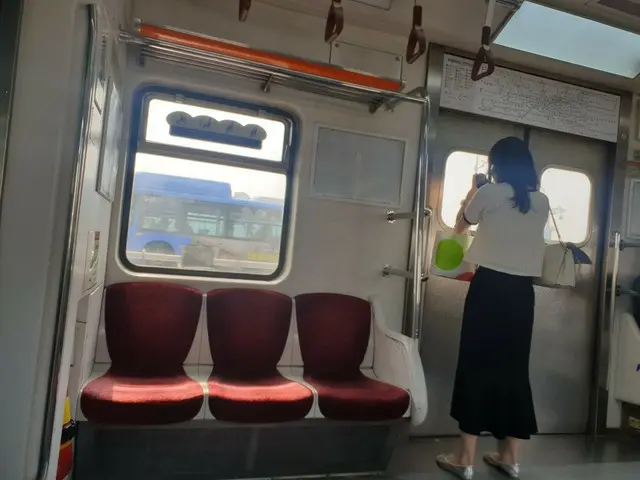I will. (For Westerners, there are obvious differences in hair, facial features, skin color, etc., so they often treat people as being ``different from me,'' but for Japanese and Korean people, most of them are similar and there are subtle differences.)
Because of this, we tend to treat people with the customs, actions, and ideas of our own country.Even though we may look similar, we are obviously foreign people who grew up in different environments with different histories and climates.These subtle differences are surprisingly annoying. )
Part 1. When you pass someone on a street corner, unlike in Tokyo, people in Seoul don't tend to shy away a little, bow slightly, or say "hello," and even when their bodies touch, they just pass by without saying anything.
it is normal. It's as if he has no interest in anyone but himself. Even when I press the button to wait for someone who is in a hurry to get on the elevator, very few people nod, and it feels strange to ride in silence.
Masu. Of course, there are individual differences... I think it's like in Japan, where a small gesture can make someone feel at ease, but people in this country are generally very rude to strangers. However, “Uri (we/parents)
When it becomes ``I feel good'', ``jou'' is activated. When eating something on a train, it is normal to face each other or pass the food to the person sitting next to you, and it is not a common sight to see people sitting right next to each other.
But... Part 2. Recently, I often see women wearing makeup on the train in Seoul. I ran into him on the subway the other day. For women who work confidently without worrying about what others think. That's good too
I was surprised to see someone standing and putting on makeup even though the front seats were open (photo). If I were in Japan, I probably would have sat in the priority seat and put on my makeup. Why is it empty?
is. Choose the one that won't cause trouble to anyone and is easy to work with. However, the lady from this country was standing there and painting her hair as hard as she could. The reason is! ?
In South Korea, it is still rare for young or middle-aged people to sit in priority seats. Even if I sat down, the elderly and children came.
I quickly stand up and offer my seat. It's a charming scenery. In this country, even though it has died out recently, there is still a spirit of respect for the elderly that exists in Japan, and there are people who complain when you sit down, so people don't respect sitting in priority seats.
There are also aspects that are far away. Perhaps it is characteristic of people in this country that they are unable to turn a blind eye, take care of people even when they don't want them to, and are meddlesome. “A small kindness, a big help” is necessary.
That's good, but... Part 3. In another article, I wrote that Koreans do not "split the bill" and that although there is a loanword called "Dutch Pay", it does not exist in Korean, but recently I have seen people paying by membership fee system.
However, it is still common for one person to pay alone (even if it is not for company business). There is a tacit agreement that if you have the financial means or if something happens (celebrations, etc.), you will pay by yourself.
I wouldn't say it's natural to be treated well, but it's normal to just say a quick greeting and not express your gratitude in an exaggerated way.
A Korean psychologist analyzes this act of ``giving something out alone'' as an expression of self-assertion.
was doing. Also, if the bill is paid in order instead of splitting the bill, there will be variations in the place and number of people gathered, and some people will gain and others will lose, but I wonder if the people of this country are too generous (!?) to care about that.
4. There are almost no opportunities to see small change in this country. Sometimes I see 500 won coins, but 100 won, 50 won, and 10 won coins don't exist.
There are people who have never even seen me there... That's why Koreans don't use coin purses. If there is a fraction at the time of payment, either the person receiving the payment or the person paying should round it up or round it up to block the number of coins.
I'll put it away. Another reason is that prices have increased and there are fewer products priced in 100 won units, and the spread of card payments. Part 5.
I feel like Koreans like to gather together more than Japan, and there are many cases of people deepening their friendships while eating and drinking.
. Of course there are reunions and study sessions, but there are also small gatherings of close friends of junior high school and high school alumni, drinking parties with military colleagues, company alumni gatherings, hometown gatherings, and other occasions where people gather and share drinks.
At the same time, we will deepen our intimacy all at once. Therefore, it is difficult for people who cannot drink alcohol in this country. Especially in business...
It is the same in Japan that people deepen their friendships and build relationships by eating and drinking together.
However, I feel that this country has a stronger relationship in terms of frequency and intimacy. In South Korea, even when we meet for the first time, under the influence of alcohol, we can open up to each other surprisingly quickly and realize that we have been friends for a long time.
business). They call each other hyung (older brother) and aunim (honorific expression for younger brother), as if they were real siblings, and their relationship becomes much stronger. In the past, people used to have intimate relationships, such as exchanging cups and hugging each other.
We used to express intimacy by touching each other, but now we don't do it that much anymore. Completed. *Contributed by Gon Yong-dae, representative of the Korea-Japan Temperament Comparison Study Group. Graduated from the Department of History at Seoul University and completed graduate school at the same newspaper. Korea
Works at an aviation training center. Worked as the Japan and China manager for Asiana Airlines. Author of "Do you really know 'Korea'?"
2023/11/09 16:00 KST
Copyrights(C)wowkorea.jp 116



